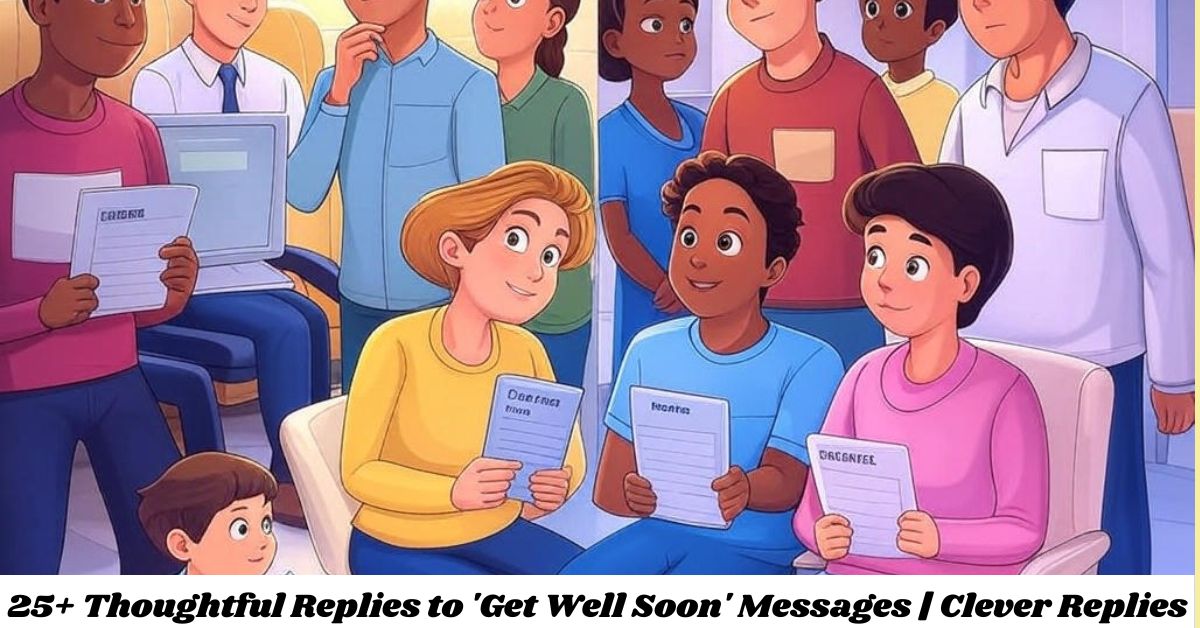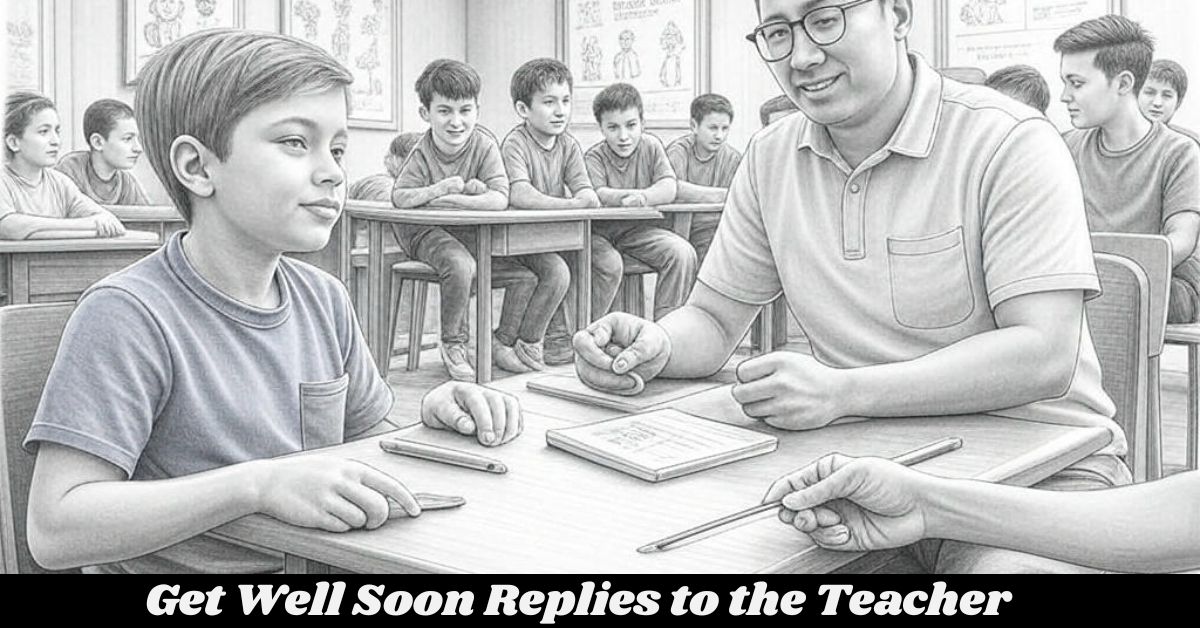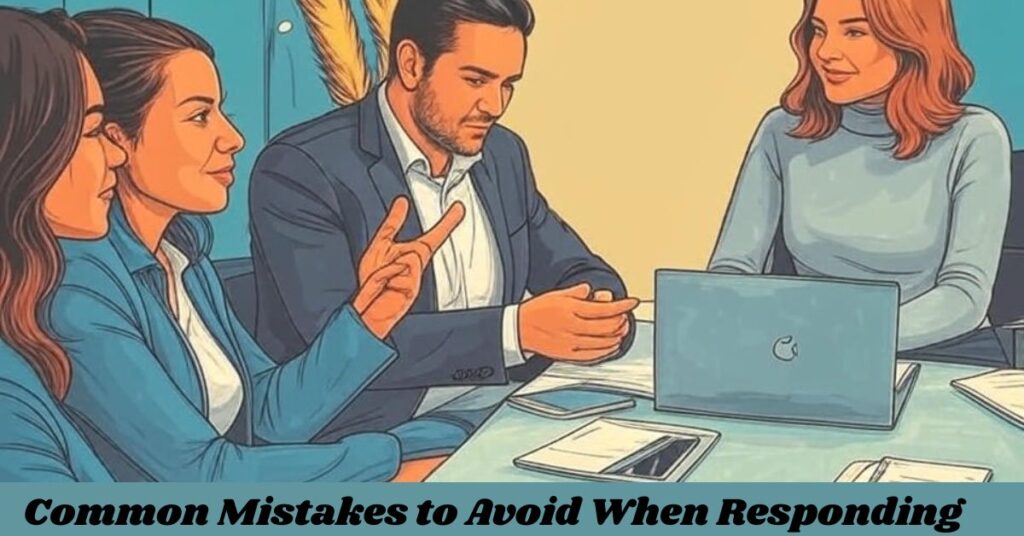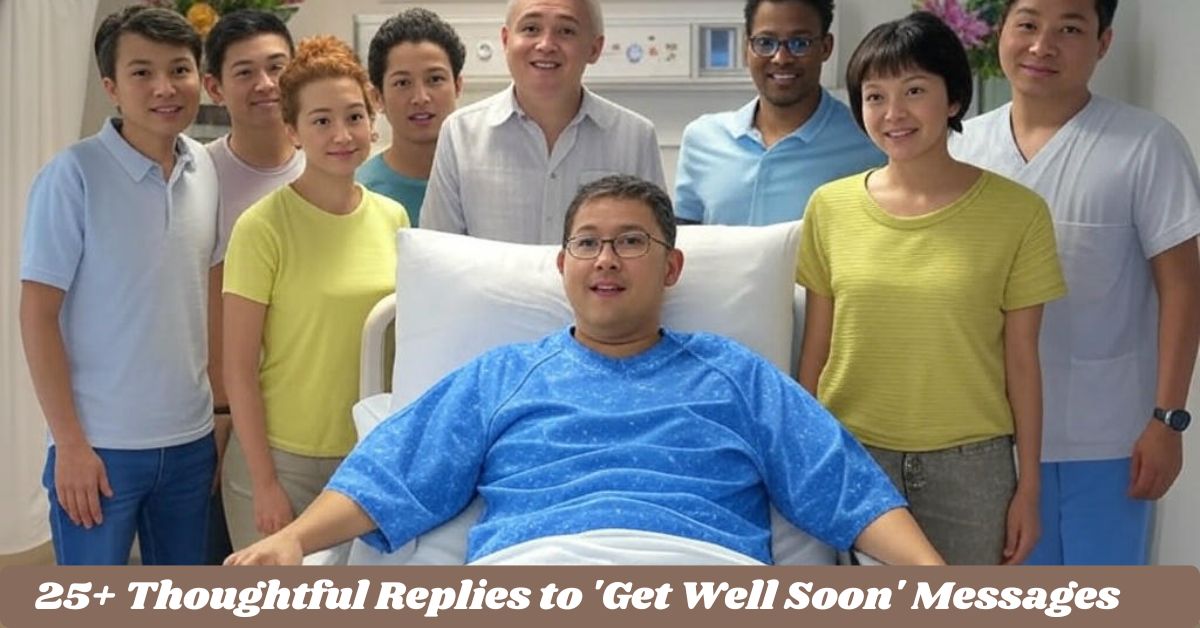When illness strikes, the support from friends, family, and colleagues can make a significant difference in your recovery journey. Those simple “Get Well Soon” messages carry powerful healing energy. Knowing how to respond with gratitude not only acknowledges their kindness but strengthens your connections during challenging times.
This comprehensive guide provides thoughtful replies tailored for different relationships and situations. Whether you’re recovering quickly or facing a longer health journey, you’ll find the perfect words to express your appreciation for their care and concern.
The Importance of Acknowledging Well Wishes
Every “Get Well Soon” message deserves recognition. These messages are more than just words; they represent someone taking time from their day to think about your well being. Responding appropriately shows you value their concern and strengthens your relationship during vulnerable times.
- A thoughtful reply creates a meaningful connection even when you’re physically separated
- Expressing gratitude for support helps maintain positive relationships
- Acknowledging concern shows you appreciate their thoughtfulness
- Your response can provide comfort to those worried about you
- Even brief replies demonstrate that their message has made a difference
How to Craft the Perfect Response
Creating the ideal reply depends on your relationship with the sender and your current health situation. The key is balancing honesty about your condition with appropriate appreciation for their concern.
- Keep your tone aligned with your relationship dynamic
- Include a brief health update if appropriate
- Express genuine gratitude for their thoughtfulness
- Match their level of formality or casualness
- Consider adding a small personal touch that acknowledges your specific relationship
25+ Thoughtful Replies to ‘Get Well Soon’ Messages | Clever Replies

Finding the right words when you’re not feeling your best can be challenging. These carefully crafted responses will help you express genuine appreciation while maintaining appropriate boundaries based on your relationship with the sender.
Get Well Soon Replies to a Friend
Friends provide essential emotional support during illness, often going beyond mere words to offer practical help. Your response should reflect the depth of your friendship and communicate sincere gratitude for their concern.
- “Thanks for checking in! Your message was exactly the boost I needed today.”
- “Your thoughtfulness means the world to me. Can’t wait to catch up when I’m back on my feet!”
- “Friends like you make recovery so much easier. Thank you for thinking of me.”
- “Your message brought a much-needed smile to my face. Grateful for our friendship.”
- “I’m feeling a bit better each day, and knowing you’re thinking of me helps tremendously.”
- “Your support is better medicine than anything the doctor prescribed! Thanks for caring.”
- “Slowly but surely getting better. Your message was a bright spot in my day.”
- “Can’t wait until I’m well enough for our usual adventures. Thanks for the good vibes!”
- “Your kindness is helping me heal faster. Truly appreciate you reaching out.”
- “The perfect message at the perfect time. You always know how to lift my spirits!”
Get Well Soon Replies to the Boss

Responding to your boss requires balancing professionalism with genuine appreciation. Your reply should acknowledge their concern while subtly reassuring them about your commitment to return to work when appropriate.
- “Thank you for your kind message. I’m focusing on recovery and look forward to returning soon.”
- “I deeply appreciate your thoughtfulness. Your support makes a significant difference.”
- “Thank you for understanding during this challenging time. I’m making steady progress.”
- “Your message was very encouraging. I’m following the doctor’s orders to ensure a speedy recovery.”
- “Thank you for your concern. I’m taking necessary steps to return as soon as medically advised.”
- “I appreciate your support and understanding. Looking forward to rejoining the team soon.”
- “Your kind words mean a lot. I’m committed to a full recovery and returning to work promptly.”
- “Thank you for reaching out. I’ll keep you updated on my progress.”
- “Your thoughtfulness is truly appreciated. I’m determined to recover quickly and efficiently.”
- “I’m grateful for your understanding. Rest assured I’m focusing on getting back to full health.”
Get Well Soon Replies to the Teacher

Teachers often show concern that extends beyond the classroom. Responding to their well wishes should reflect respect while demonstrating your commitment to returning to your studies as soon as possible.
- “Thank you for your kind message. I’m working hard to recover and catch up on lessons.”
- “I appreciate your understanding during this time. Looking forward to rejoining class soon.”
- “Your supportive words mean a lot. I’m focusing on getting better quickly.”
- “Thank you for checking in. I’m making progress each day and keeping up with assignments.”
- “I’m grateful for your concern. Can’t wait to get back to our engaging discussions.”
- “Your message was truly motivating. I’m determined to return as soon as possible.”
- “Thank you for your thoughtfulness. I’m taking this time to heal while staying connected to coursework.”
- “I appreciate your support. Working toward a swift recovery to minimize missed learning.”
- “Your kind words are helping me focus on healing. Looking forward to being back in class.”
- “Thank you for reaching out. Your encouragement makes me even more determined to recover quickly.”
Get Well Soon Replies to Family Members
Family connections often allow for more personal and emotionally open responses. These replies can acknowledge the special bond you share while expressing appreciation for their ongoing support.
- “Your love and support mean everything to me right now. Thank you for always being there.”
- “Family really is the best medicine. Your message warmed my heart.”
- “Thank you for checking in. Knowing you’re thinking of me makes recovery a bit easier.”
- “Your care and concern are felt every day. So grateful to have you in my corner.”
- “Thank you for being my rock during this challenging time. Love you.”
- “Your message reminded me I’m not alone in this journey. Thank you for your unwavering support.”
- “Getting stronger each day with your love and encouragement as my foundation.”
- “Family support like yours is the most powerful healing force. Thank you.”
- “Your message brought tears to my eyes. So blessed to have you in my life.”
- “Thank you for being there through thick and thin. Your support is my strength.”
Get Well Soon Replies for Social Media Messages
Social media well-wishes often come in larger volumes and may require more concise responses. These replies work well for broader audiences while still conveying genuine appreciation.
- “Overwhelmed by all your kind messages. Each one helps me heal a little more.”
- “Thank you all for the support! It means more than you know during this recovery journey.”
- “Your collective well wishes are better than any medicine. Truly grateful.”
- “Reading your messages has been the highlight of my days. Thank you all.”
- “The outpouring of support has been amazing. Feeling very loved and on the mend.”
- “Thank you for filling my feed with such positivity. It’s making a difference!”
- “Your kindness is felt and deeply appreciated during this challenging time.”
- “Recovery is made easier knowing I have such a supportive community. Thank you!”
- “Grateful for every message, comment, and reaction. You all are amazing.”
- “Your virtual hugs and well wishes are helping me get stronger each day.”
Get Well Soon Replies to Colleagues
Workplace relationships require responses that balance friendliness with appropriate professional boundaries while acknowledging their support.
- “Thank you for your thoughtful message. Looking forward to rejoining the team soon.”
- “I appreciate your support during this time. Your message was a bright spot in my day.”
- “Thank you for thinking of me. It’s nice to know my workplace family cares.”
- “Your kind words mean a lot. Can’t wait to get back to our collaborative efforts.”
- “I’m grateful for your message. It’s encouraging to have such supportive colleagues.”
- “Thank you for reaching out. Your thoughtfulness makes me even more eager to return.”
- “I appreciate you taking time to send good wishes. Your support is truly valued.”
- “Your message was a wonderful reminder of the great team I’m fortunate to work with.”
- “Thank you for your understanding and support. Looking forward to being back at full strength.”
- “Your kind words are helping me focus on recovery so I can return to work refreshed.”
READ THIS BLOG : 100 Ways To Respond to WhatsUp, Whassup or Sup
How to Respond Based on Your Condition
Your current health situation should influence how you respond to well wishes. These suggestions help you craft authentic replies that acknowledge your reality while still expressing gratitude.
When You’re Recovering Quickly
- Keep responses upbeat and forward-looking
- Include positive updates about your progress
- Express enthusiasm about returning to normal activities
- Share appreciation for their support during your brief illness
- Maintain an optimistic tone throughout your message
When Recovery Is Taking Longer
- Be honest without sharing overwhelming details
- Express appreciation for their patience and ongoing support
- Focus on small improvements rather than the challenges
- Acknowledge the value of their encouragement during a difficult time
- Include gentle reminders that recovery takes time
When Facing Serious Health Challenges
- Keep responses simple but sincere
- Express deep gratitude for their support during a challenging time
- Acknowledge the comfort their message provided
- Share how meaningful their thoughtfulness is during difficulty
- Focus on the emotional support rather than medical details
Reply Methods: Text, Email, and In Person
The communication channel you choose affects how your response is received. Consider these factors when selecting how to express your gratitude.
Text Message Replies
- Perfect for quick acknowledgments
- Ideal for friends and close colleagues
- Can include emojis to add emotional context
- Works well for brief, warm responses
- Good option when energy is limited
Email Replies
- More formal and appropriate for professional relationships
- Allows for slightly longer, more detailed responses
- Good for thoughtful messages to those not in your inner circle
- Useful when responding to groups or work teams
- Provides documentation of your communication
In Person or Phone Replies
- Creates deeper emotional connection
- Shows significant appreciation for their concern
- Appropriate for close relationships and serious situations
- Allows for more nuanced expression of gratitude
- Creates opportunity for meaningful conversation
Common Mistakes to Avoid When Responding

Even with good intentions, certain response approaches can seem insincere or inappropriate. Avoid these common pitfalls when acknowledging well wishes.
- Don’t ignore messages completely even a brief acknowledgment is better than silence
- Avoid overly negative updates that might worry the sender
- Don’t send identical copy paste responses to everyone
- Resist the urge to downplay their concern or dismiss their kindness
- Don’t feel obligated to share medical details you’re uncomfortable discussing
- Avoid making promises about recovery timelines you can’t control
- Don’t wait for “perfect health” before responding timely acknowledgment matters
READ THIS BLOG : 60+ Ways to Express Your Gratitude for Financial Support
Frequently Asked Questions
How quickly should I respond to ‘Get Well Soon’ messages?
Respond when you have the energy and capacity. People understand you’re unwell and aren’t expecting immediate replies. A delayed sincere response is better than a rushed generic one.
Should I respond differently to group messages versus individual ones?
Yes. Individual messages deserve personalized responses when possible. For group messages, a thoughtful collective thank you acknowledging everyone’s support is appropriate and efficient.
Is it okay to ask for help in my response?
Absolutely. If you need assistance, your response can graciously acknowledge their concern while mentioning specific ways they might help during your recovery.
How can I respond if I’m too sick to write individual messages?
Ask a family member to help or post a collective thank you on social media. A simple “Thank you all for your kind messages. They mean the world to me as I focus on recovery” is perfectly acceptable.
What if someone’s ‘Get Well Soon’ message feels intrusive or insincere?
A brief, polite acknowledgment is still appropriate. Something like “Thank you for your message” suffices without encouraging further unwanted communication.
Conclusion
Responding to “Get Well Soon” messages is an opportunity to strengthen connections and express gratitude during challenging times. Your replies don’t need to be lengthy or elaborate. What matters most is acknowledging the kindness extended to you during vulnerability.
Remember that your words carry healing power not just for you, but for those concerned about your wellbeing. A thoughtful response reassures them and nurtures your relationship during a difficult period.
As you recover, let the support of others remind you that you’re not alone in your journey toward wellness. The time you take to acknowledge their care will be remembered and appreciated long after your recovery is complete.

Jerry is a seasoned SEO expert with a passion for content writing, keyword research, and web development. He combines technical expertise with creative strategies to deliver exceptional digital solutions.










